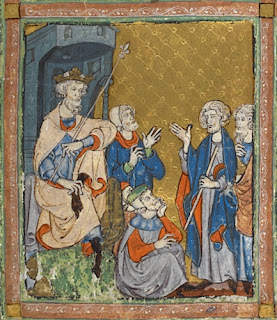Today is the wrong day for commemorating the Holocaust. The United Nations first adopted an International Holocaust Remembrance Day on January 27th in 2005; Silvan Shalom, then Israel’s Foreign Minister, championed this much overdue initiative. The date of January 27th was chosen to commemorate the liberation of Auschwitz, in order to honor the Allied efforts on behalf of the Jews. And that is precisely what’s wrong with this date; before the liberation, there was apathy, insensitivity and abject failure.
The Allies had multiple opportunities to do something - anything - to save the Jews of Europe, both before and during the war. The Evian Conference of 1938, the Karski Report of 1942 and the Bermuda Conference of 1943 all came and went, and the Allies continued to do nothing. The plight of the Jews of Europe was ignored.
Larry Weinberg, who was a past President of AIPAC, tells of his experience as an American GI during World War II. Larry was asked to meet with a Jewish member of the resistance who had been hiding in the forest. Larry proudly explained to the man that he was a Jewish soldier, and had come to liberate him. The man spit in Larry’s face and shouted: ‘You came too late!’. The Allies did too little, too late, to help Jews in Nazi-controlled territories. If we are going to choose a date to mark the international response to the Holocaust, it should commemorate one of the conferences and meetings when the world refused to act, and chose to look on while Germany murdered Jew after Jew.
The genocide of six million required the complicity of the entire world. Even the Allies, who were fighting for the cause of freedom, did next to nothing to save the Jews. And this raises one of the most painful questions about the Holocaust: where was man?
During the Holocaust, humanity failed, 6 million times over. My mother didn't speak much about her experiences in the Holocaust; but she would tell us about one episode that happened right after she arrived in Auschwitz, because it shocked her so deeply. A mother and daughter were talking to each other, and a Nazi, observing their obvious affection for each other, shot the daughter in front of her mother’s face. What shocked my mother was the complete lack of emotion the Nazi showed, as if he was taking target practice.
Eliezer Berkovits explains that before we wonder where God was during the Holocaust, we need to ask where was man. Why God allows bad things to happen to good people is a disturbing theological problem, but at the same time, we understand that our knowledge of God is limited. It is far more difficult to comprehend how our fellow man can be so cruel and bloodthirsty. How could the Nazis perpetrate these indescribable crimes? How could the rest of the world look on? Neither a sophisticated culture, nor Christian values, nor the utopian ideals of the 20th century prevented Germany and her helpers from perpetrating the greatest genocide in history.
The Holocaust reminds us that our faith in man is misplaced; and this lesson is thousands of years old. This week’s Torah reading tells about the surprise attack by Amalek on the weak and wandering Jews in the dessert. Rabbi Samson Raphael Hirsch explains that Amalek despised the needy and held the spiritual in contempt; to Amalek, it is power alone that matters.
Our job is to struggle against the Amalek ideology, generation after generation. There is a tendency to underplay pronouncements of hatred as “mere rhetoric”; that is a mistake. As the Jewish people have learned, time and again, those who promise violence should be taken at their word. And at the same time, we also must find more Jethros.
Right after the attack of Amalek, the Torah tells us about the visit of Jethro. He travels from Midian, and offers support to his son-in-law Moses and the freed slaves. The 12th century Rabbi, Abraham ibn Ezra explains that Jethro’s story is told immediately after Amalek, in order to show another side of humanity: there are those who are unconditionally helpful and good. Man is capable of inhumanity, but also capable of heroism. And we must remember the Jethros who stand up for what is right.
Yad Vashem has been recognizing the Righteous Among the Nations since 1963. There are 27,712 such people who are recognized, even though there certainly many more people who helped save the lives of Jews. These rescuers include people Oscar Schindler and Irina Sandler who saved thousands of lives. Personally, I am drawn to the less famous rescuers, uneducated rural peasants who saved lives without thinking twice.
Years ago, a friend of mine was visiting Yad Vashem while there was a ceremony inducting a rural Polish couple into the Righteous Among the Nations. The couple were being interviewed about what they had done, and they were asked why they risked their lives to rescue Jews. The answer was so moving in its simplicity:
They (the Jews)
were running, and they needed a place to stay. So we took them in.
That is the lesson for today. All of the well educated men in the U.S.
Department of State had less heart and heroism than this simple couple. We need
to learn from this couple that if people need help, we need to be there for
them. In times of moral crisis, we need to think less, talk less, and do more.
And we need to get there on time.



